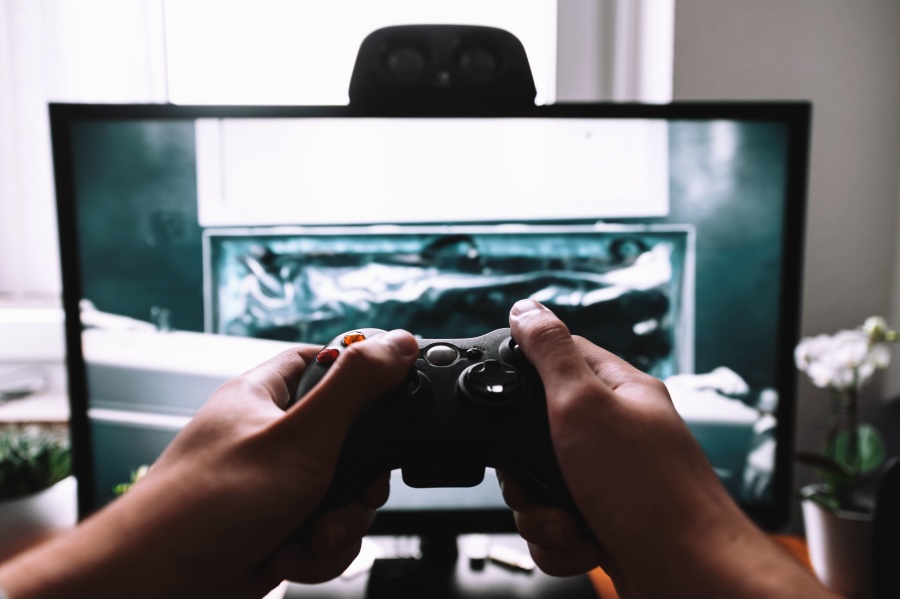 Health and wellbeing have become a top priority for people all over the world. Brand new wearable tech developments like FitBits and sleep monitors bring the art of biohacking to our homes, meditation and mindfulness apps give us our daily dose of calm, while the supplement industry has never been more popular with the average consumer.
Health and wellbeing have become a top priority for people all over the world. Brand new wearable tech developments like FitBits and sleep monitors bring the art of biohacking to our homes, meditation and mindfulness apps give us our daily dose of calm, while the supplement industry has never been more popular with the average consumer.
Investing in our health is no longer a luxury, but there’s one simple and cost-effective way to boost your brain that you might be missing out on – playing games.
Numerous studies have been conducted since the turn of the 21st century that analyze the effects of gaming on the brain. Researchers have concluded that playing games doesn’t just change how our brains perform, but they can also affect the structure of our brains too.
Video Games can be good for you
Ever since the heyday of video gaming back in the late 20th century, video games have become demonized in the world’s media. Video gaming has since proven to be one of the most important technological developments of the modern world, but it also has some surprisingly good side effects.
In 2019, a team of researchers at the University of California developed a video game, Tenacity, which was designed to increase mindfulness in participants. Although the study group was small, the results indicate that playing the game over the course of several weeks didn’t just improve the participants’ sense of their own well-being. It also increased the connections between different regions of the brain associated with attention.
More recently, a 2020 Oxford study concluded that playing video games can have a positive impact on mental health. The study marked a breakthrough collaboration which saw the research team work directly with actual gameplay data for the first time. The players who spent the most time gaming reported greater levels of wellbeing at the end of the study.
The study group was made up of a demographically-diverse range of gamers who regularly played Nintendo’s smash hit Animal Crossing game, as well as EA’s Plants vs. Zombies shoot ‘em up. During the course of the study, the researchers were able to access real-time playing data, linking up psychological questionnaires with actual records of time spent playing games.
Gaming develops critical skills
In addition to straightforward video games, regularly playing more specialized games of skill like chess and poker can have a dramatic, positive effect on the brain. Scientific evidence shows that playing such games can increase bot the size and efficiency of key regions of the brain, such as the right hippocampus, which is related to memory and visuospatial skills.
Professional poker players are known for their critical thinking, effective decision making, and impressive cognitive skills. It takes a lot of brainpower to memorize all the rules that govern the different variants like Texas Hold’em or Omaha Hi-Lo, and read your opponent’s moves at the same time. Because of this intrinsic complexity, playing poker fosters neuroplasticity since it helps to create new pathways in the brain and reinforces the process of myelination, which is essential to a healthy and effective central nervous system.
Meanwhile, the game of chess activates and strengthens several regions of the brain such as the prefrontal cortex, which is responsible for self-control, rational thinking and judgment. The strategic nature of the game develops critical thinking and greatly improves problem-solving skills, due to the ever-changing nature of the game itself. And while chess remains one of the greatest strategy games of all time, playing it can even spark higher levels of creativity, since playing it activates the right side of the brain as well as the left.
The power of Board Games
It’s not just video games and complex games of skill like poker and chess that can impact the brain, however. The humble board game also wields a lot of power when it comes to making positive changes in the brain.
Playing board games is a fun and effective way to improve essential cognitive skills like problem-solving and decision making while stimulating the regions of the brain that govern short-term memory and complex thoughts. Relatively simple board games have also proven to be a useful tool in the fight against dementia, with several studies concluding that they can both reduce the risk of developing Alzheimer’s and generate short-term improvements in pre-existing cases.
